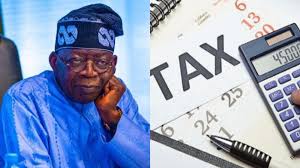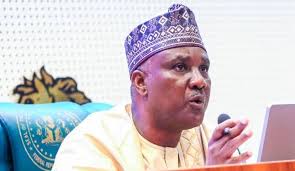 The African Development Bank (AfDB) has released the rating of economy of Africa with the projection that economic growth in West Africa would rise to 3.8 per cent in 2018.
The African Development Bank (AfDB) has released the rating of economy of Africa with the projection that economic growth in West Africa would rise to 3.8 per cent in 2018.
According to the bank’s African Economic Outlook released, the growth will be 3.9 per cent in 2019.
The outlook, which said the region’s economy rebounded to 2.5 per cent in 2017, added that household consumption and the relative price recovery of certain materials are expected to contribute to this performance.
The report said after several good years, economic growth in West Africa stagnated at 0.5 per cent in 2016.
The decline in the price of raw materials and the unimpressive performance of Nigeria, which alone accounts for about 70 per cent of the sub region’s GDP, were some of the key factors identified as responsible for stagnation.
Marie-Laure Akin-Olugbade, Deputy Director General of the African Development Bank for West Africa, identified job creation, especially for young people as the big challenge for the sub-region.
“The 2018 Regional Economic Outlook for West Africa presents a comprehensive analysis of the economy and the labor market of 15 countries, focusing on macroeconomic stability, employment and poverty of the population living in West Africa. Let us not forget that some of the countries in this sub-region are facing enormous security challenges,” she said.
The regional economic studies were released in Tunis (North Africa), Abidjan (West and Central Africa), Nairobi (Eastern Africa) and Pretoria (Southern Africa).
“By offering regional approaches for the first time, we want to leverage the Bank’s expertise and give more depth of analysis and relevance to this publication,” said Celestin Monga, Chief Economist and Vice President of the African Development Bank’s Economic Governance and Knowledge Management.
According to Nnena Nwabufo, the Bank’s Deputy Director General for the East Africa Region, the East African Economic Outlook highlights a number of policies that member countries must implement to transform their economies.
East Africa, with thirteen countries, recorded the continent’s best economic performance with a GDP growth rate of 5.9% in 2017 −a rate much higher than the growth recorded by the other regions of the continent, and above the continental average of 3.6%.
The good performance of the East African sub region is stimulated by six countries: Ethiopia, Tanzania, Djibouti, Rwanda, Seychelles and Kenya. The outlook remains positive for 2018 and 2019, with growth expected to continue, reaching 5.9% in 2018 and 6.2% in 2019.
On the North Africa, the report said the region ended 2017 with growth of 4.9% of real GDP, up from 3.3% recorded in 2016. The region’s economic performance is above a 3.6% average for the continent.
Overall, growth in the North Africa region was fuelled by new high value-added sectors such as electronics and mechanics, as well as private and public consumption.
The region’s outlook remains positive for 2018 and 2019, on account of structural reforms. Growth in North Africa is expected to reach 5% and 4.6% respectively in 2018 and 2019.
The Central African region recorded 0.9% real GDP in 2017, the lowest growth rate of the continent, although it represents a relative improvement over growth of 0.1% in 2016.
This sub regional performance masks many disparities between countries: relatively good growth for Cameroon and the Central African Republic, and very low growth for Equatorial Guinea and Congo.
The economic difficulties in Central Africa are largely due to lower raw material prices, which some countries in the region are heavily dependent on, as well as recurring security threats in others.
The outlook for 2018 and 2019 is more encouraging, fueled by rising world prices for raw materials and domestic demand. According to the Bank’s projections, real GDP growth in Central Africa is expected to reach 2.4 percent in 2018 and 3 percent in the following year. Other enabling factors include sound macroeconomic management and a more favorable institutional environment.
“With improvements in the economic situations of Congo and Equatorial Guinea, the economic performance of the sub-region is expected to improve in 2018 and 2019. It would be good to include this improvement over time through the diversification of economies of the sub region,” said Racine Kane, Deputy Director General of the African Development Bank for Central Africa.
Source: AfDB










